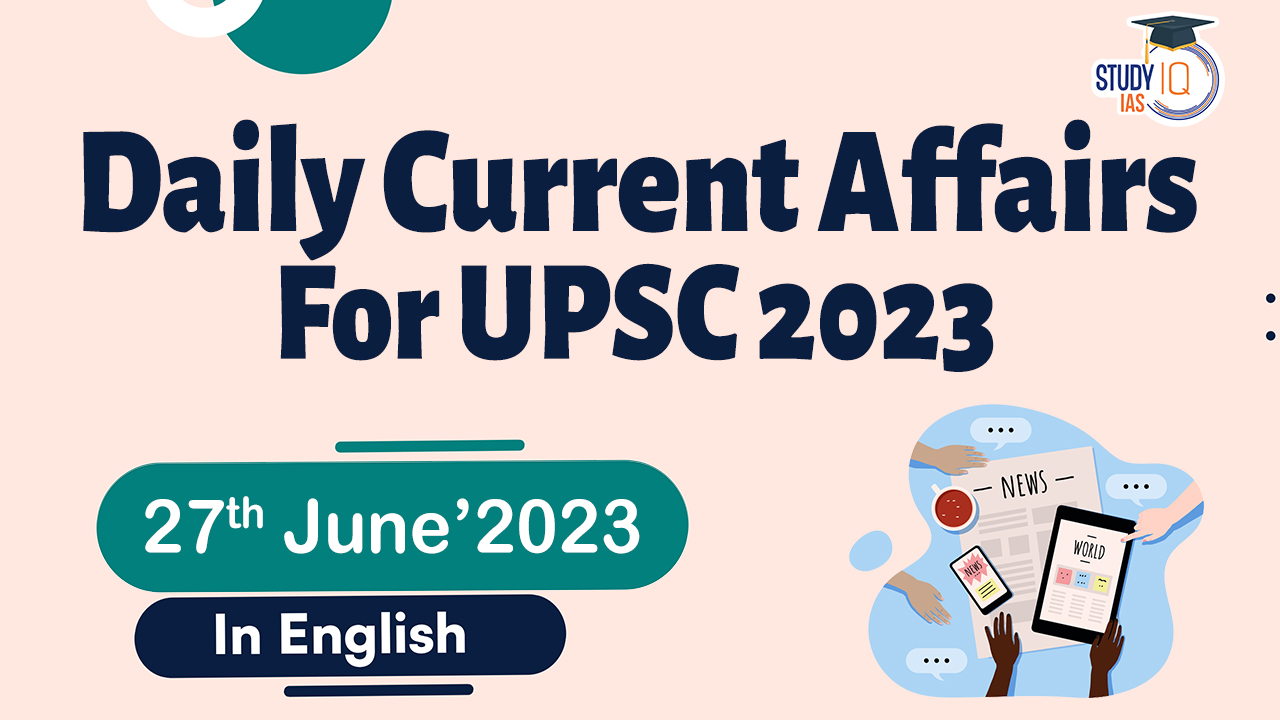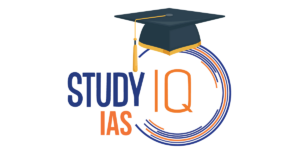Daily Current Affairs for UPSC 2023
Q) Recently seen in news, the ‘Global Liveability Index 2023’ is released by which one of the following organization?
- UN-Habitat
- World Economic Forum
- Economist Intelligence Unit
- World Tourism Organization
Daily Current Affairs for UPSC – 26 June April 2023
Explanation:
- Option (3) is correct: The Economist Intelligence Unit (EIU) has recently unveiled the Global Liveability Index for 2023. EIU’s index quantifies the challenges presented to an individual’s lifestyle in 173 cities worldwide. Healthcare, education, culture, environment and stability were used as parameters in the ranking. The index rose last year to reach a 15-year high as the world recovered from the pandemic. The average index score is now 76.2 out of 100, up from 73.2 a year ago. Despite overall growth in the index score, stability saw a marginal decline. It is because of instances of civil unrest in many cities amid a cost-of-living crisis and an uptick in crimes in some cities. Those in Western Europe have slipped in rankings due to increased instances of workers’ strikes failing to “match gains” made by cities in Asia and the Middle East. Vienna (Austria), Copenhagen (Denmark), Melbourne and Sydney (Australia) has been named the best city to live in the world. Algeria’s Algiers, Libya’s Tripoli and Syria’s Damascus were ranked the three least liveable cities in the world. These cities which are plagued by ongoing civil unrest and military conflicts, amongst other issues, remained at the bottom of the list. From Asia, Japan’s Osaka was ranked number 10 in the rankings.
Q) Consider the following statements about ‘Delimitation Commission’:
- The Commission is appointed by the President of India.
- Its orders can be challenged before the High Court.
- It helps in dividing the states into territorial constituencies after every Census.
How many of the statements given above is/are correct?
- Only one
- Only two
- All three
- None
Explanation:
- Statement 1 is correct: Delimitation is the act of redrawing boundaries of Lok Sabha and state Assembly seats to represent changes in population. The Delimitation Commission is appointed by the President of India includes following members:
- Retired Supreme Court judge
- Chief Election Commissioner
- Respective State Election Commissioners
- Statement 2 is incorrect: The Constitution mandates that the Commission’s orders are final and cannot be questioned before any court as it would hold up an election indefinitely. After the delimitation commission determining the number and boundaries of constituencies, the draft proposals of the Commission are published for public feedback. The Commission also holds public sittings. After hearing the public, it considers objections and suggestions, and carries out changes, if any, in the draft proposal. The final order is published in the Gazette of India and the State Gazette concerned and comes into force on a date specified by the President.
- Statement 3 is correct: Article 82 of the constitution provides the Parliament with the authority to enact a Delimitation Act after every Census. Article 170 provides for the States to get divided into territorial constituencies as per the Delimitation Act after every Census. Delimitation is carried out by an independent Delimitation Commission, appointed by the Government of India under provisions of the Delimitation Commission Act.
Q) With reference to Meitei Tribes, consider the following statements:
- They mainly live in the Imphal Valley in the state of Tripura.
- The ‘Meitei Language is one of the official languages recognized under the Eighth Schedule of the Constitution of India.
- They are recognized as a Scheduled Tribe by the government of India.
How many of the statements given above is/are correct?
- Only one
- Only two
- All three
- None
Explanation:
- Statement 1 is incorrect: The Meiteis also known as Meetei are the dominant ethnic group of the North Indian state of Manipur. The Meiteis are divided into seven Salai or clans-Mangang, Luwang, Khuman, Angom, Moirang Kha, Ngangba, and Sarang Leishangthem. Meiteis mainly live in the Imphal Valley region of the state of Manipur, though a sizeable population has settled in the other Indian states of Assam, Tripura, Nagaland, Meghalaya, and Mizoram.
- Statement 2 is correct: The Meitei ethnic group makes up around 53% of the population of
Manipur (Census of India, 2011). The Meitei people speak the Meitei language which is also known as the Manipuri language, and comes under the sub-family of the Tibeto-Burman language. One of India’s recognised official languages, Meitei, was added to the Eighth Schedule of the Constitution of India in 1992. Meiteis follow only two religions, with an overwhelming majority of Meiteis practicing Hinduism. Around 16% of Meiteis traditionally believe in Sanamahi religion named after godSanamahi. Around 8% of Meiteis follow Islam. - Statement 3 is incorrect: A Manipur High Court orderon the demand for Scheduled Tribe status for Meitei people observed that no action had been taken by the government despite the multiple requests submitted by the community since 2013. The Meiteis want to be designated as a Scheduled Tribe in order to protect their “ancestral land, traditions, culture and language”.
Q) Consider the following statements about National Medical Commission (NMC):
- The NMC is a statutory body that aims to improve access to affordable medical education.
- It frames policies for the Ethics and Medical Registration Board in India.
- The NMC conducts the NEXT exam as a common qualifying entrance-level exam for MBBS.
How many of the statements given above is/are correct?
- Only one
- Only two
- All three
- None
Explanation:
- Statement 1 is correct: The National Medical Commission (NMC) was constituted by National Medical Commission Act, 2019. NMC replaced the Medical Council of India (BoG-MCI) and consequently, the Indian Medical Council Act, 1956 was repealed.
- Statement 2 is correct: NMC is an overarching body that frames policies and co-ordinates the activities of the autonomous boards:
- Under-Graduate Medical Education Board
- Post-Graduate Medical Education Board
- Medical Assessment and Rating Board
- Ethics and Medical Registration Board
- Statement 3 is incorrect: According to the National Medical Commission (NMC) Act, the National Exit Test (NEXT) will serve as a common qualifying final year MBBS exam, a licentiate exam to practice modern medicine and for merit-based admission to postgraduate courses. It shall also be a screening exam for foreign medical graduates who want to practice in India. NEET and NEXT will also be applicable to institutes of national importance such as all the AIIMS, to ensure a common standard in the medical education sector in India. NMC will work on modalities of NEXT exam. NEXT is likely to be held in 2024.
Q) With reference to ‘Bank for International Settlements’ (BIS), consider the following statements:
- BIS acts as a bank for the central banks of the member states.
- It can ask the central bank to increase interest rates to curb inflationary pressures.
Which of the statements given above is/are correct?
- 1 only
- 2 only
- Both 1 and 2
- Neither 1 nor 2
Explanation:
- Statements 1 and 2 are correct: The Bank for International Settlements (BIS) has called for more interest rate increases, warning the world economy was now at a crucial point as countries struggle to rein in inflation. Bank for International Settlements (BIS), founded in 1930, is the oldest international organization in the field of international monetary cooperation. It aims to support central banks’ pursuit of monetary and financial stability through international cooperation, and to act as a bank for central banks. BIS has played several key roles in the global economy, from settling reparation payments imposed on Germany following the First World War, to serving central banks in their pursuit of monetary and financial stability. 63 central banks are currently members of the BIS that together account for about 95% of world GDP. The Reserve Bank of India is a member of BIS. Its Head Office is in Basel, Switzerland.


 Earthquake in Myanmar, Causes, Impact an...
Earthquake in Myanmar, Causes, Impact an...
 India’s Deep Sea Technology, Need and ...
India’s Deep Sea Technology, Need and ...
 Daily Quiz 29 March 2025
Daily Quiz 29 March 2025





















